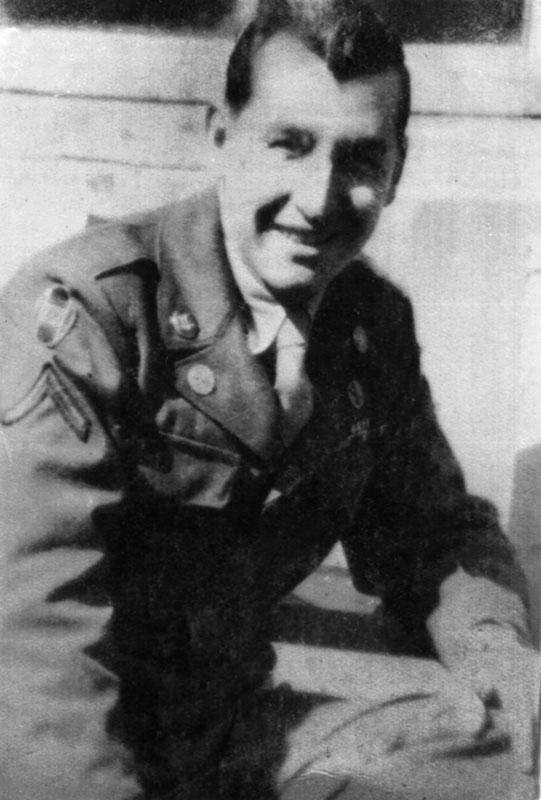Back in 1943 I turned 18 years old, which was just the right age for induction into the military service. The military was trying to determine where each outfit was going to be shipped so they were building up their divisions, companies and batteries, with the number of people they needed.
I came from a large family of nine - four girls and five boys. Four boys served in the military. Two were in the Army, one was in the Navy, one was in the Marines, and three of my sisters were married to servicemen. One brother was killed in Anzio, Italy, in 1944. He was in the 3rd Division.
I first went to Ft. Thomas, Ky., for a month, then to Ft. Bragg, N.C., then to Camp Atterbury, Ind., where I finally wound up with the 30th Division, light artillery infantry support. Next thing I knew, we were on a boat headed for England. Hitler had just about taken over all of Europe, so all the scuttlebutt indicated that we would land somewhere in France. For my division, it was to be Normandy.
The invasion started June 6, but my outfit didn't get on the beach until June 13.
We sure didn't go very far until we set those 105 Howitzers up and started firing. Day and night! The 105s came up with seven powder charges for a firing range of about six miles, but we got so close we were only using charges one and two until the enemy began retreating. As they moved back, we would move up.
Advancing was constant after that. We never let up! For my division it lasted 11 months. We fought in five major campaigns until we got within about 40 miles of Berlin. We were stopped and High Command let Russia take Berlin.
I think the worst of the Southern France Campaign was fighting in the hedge rows. The enemy would have one or two tanks along with a machine gun or two on the other side firing into the open space. Trying to advance with all that crossfire was deadly, to say the least. When we would encounter one like that, we would fire a few rounds in the open space to serve as foxholes for the infantry. It not only saved a lot of lives, but enabled us to advance faster. We received a lot of thanks from the infantry for doing that.
The Air Force was always there with their fighters and bombers to help any way they could to clear the way for our advancement. They were so good at knocking out centers of communications and factories that supplied everything for the German war effort. They were the best at that time and they still are in my book!
Before we finally got to Germany, we fought in Belgium, Holland, the Netherlands - wherever there was resistance, that's where we went.
I have part of a "Stars and Stripes" newspaper I managed to save that was printed in February 1945. That month's edition was dedicated to the 30th Division. I found an article in it about my unit, the 118th Field Artillery Battalion. It told about one of our battles in Stavelot, Belgium, where, it said, we destroyed 200 vehicles and killed 2200 of the enemy in a three-day battle.
I would never have known it without that paper.
We never knew about all the things we did. When I think of what we did in just three days of fighting, it boggles my mind to think what we must have done in a whole year. Then, I also think if we had not done all those things the world would have been a lot worse off.



